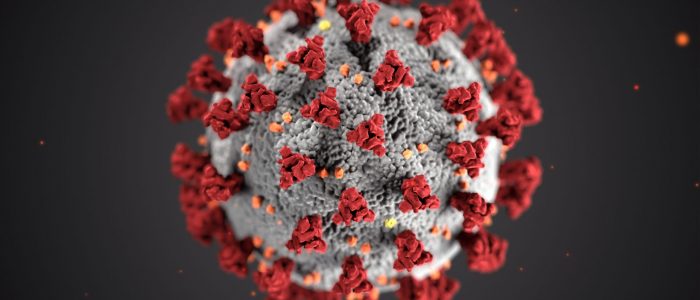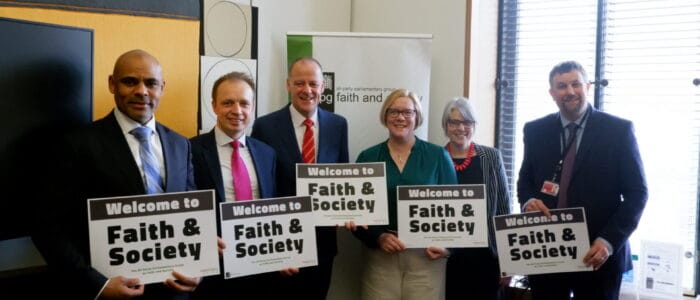We’re in extraordinary days: what’s my part to play?

As we face the current crisis around COVID-19 (or Coronavirus) more and more guidance is starting to appear, particularly advice to organisations and communities.
Yet beyond the questions on gatherings and hand washing, there is always that internal preparation that we each individually need to consider, particularly as faith is a leading influence on our lives.
Therefore, I thought I would share some of my own personal thinking, shaped by my faith and the various situations I face. I don’t offer this a definitive account of what to do, but a personalised consideration for this moment.
Sharing what I know
Many of us are in privileged positions where we know things that others don’t know – but common sense is not as common as you may think. As I work closely with health and social care services, there are a few things that we can share with our family, friends and faith community. For example:
- Think of others first: services are over stretched so think about ways to manage health issues without going to the GP or A&E. In particular, if you are showing any symptoms of Covid-19 (Coronavirus), DO NOT GO TO YOUR GP OR A&E, always go to NHS 111 online first
- A helpful distance: we will soon be encouraged to reduce the amount of social/ physical contact we have particularly with those who are more at risk – so start to plan for moving chairs further apart at gatherings. Also there will be further distancing encouraged, what alternatives are there to large gatherings.
- Rituals re-think: rethink corporate practices, for example, not taking communion from the communal cup.
Interested in the whole
There is a strong focus on the physical effects of this health crisis, and recognition that there will be economic repercussions. As a person of faith, I know there will be repercussions for our emotional and spiritual state as well. People will be distressed by the situation. This will be worse for those who have to be isolated for a period of time. Health organisations are starting to consider the mental health issues that may rise with this crisis. However, there is also an opportunity for those who are isolated to be part of the solution, by using phones and the internet to be in touch with others who are isolated. Being active and useful is great for our mental health.
The Prayer difference
I am always astounded by the difference that prayer can make, even when nothing seems to change immediately. Maybe this is because when we pray together, we take the focus off what we see in front of us and remember there is a hope beyond what we can understand.
An opportunity to grow
When a crisis hits, our priorities change. It forces a rebalancing of life. Here is an opportunity to think about what really matters. Is there a frail or elderly relative of friend who you haven’t seen, or spoken to recently? How are they? How they got all they need? Do they know what they should be doing? Wouldn’t it be great if people look back at this time, and remember an explosion of care and concern for those who are more vulnerable.
We are the village
Some will have more time, some will have less and by this I’m referring to emergency workers, charity staff, health and social care workers and those transporting goods and food. Some folk will have less time for their own families. So who will reach out to the children who are seeing less of their parents, or will we provide a hot meal for those doing extra hours. As the saying goes ‘It takes a village to raise a child’, we are that village.
How is my neighbour?
Not everyone who I could serve or who will serve me is in my faith community, or already known to me. Now is a great time to make this a truly ‘United Kingdom’ and interact with our neighbours, on our street, at the bus stop, on the train as we commute.
Humour keeps us human
How is your alternative handshake? The dreadful thing about any disease is that it has the potential to separate people, to cause there to be barriers and isolation. We are built for relationship, with each other and with God. Thus, the fun of alternative handshakes are a great ice breaker. Who knows, in years to come we may say “do you remember 2020, when we greeted each other with an ‘elbow bump’?”
Faith at forefront
This is an opportunity to show how faith can make a positive contribution. Every encounter is an opportunity. A friend of mine was recently stopped outside a faith building as he was interviewing someone about different ways faith organisations can serve the community. They were shooed away because the caretaker didn’t want things like that to be available at his faith organisation…… hmm – not really faith in action!
Individualism doesn’t work
It is plain things do not go well if individuals only do what they want. Collective action and concern is what will make a difference in this crisis. I cannot just do what I want, when I want. It seems to me that this key message of faith is one that is having to be accepted at every level of society ….
There is hope for us yet.



